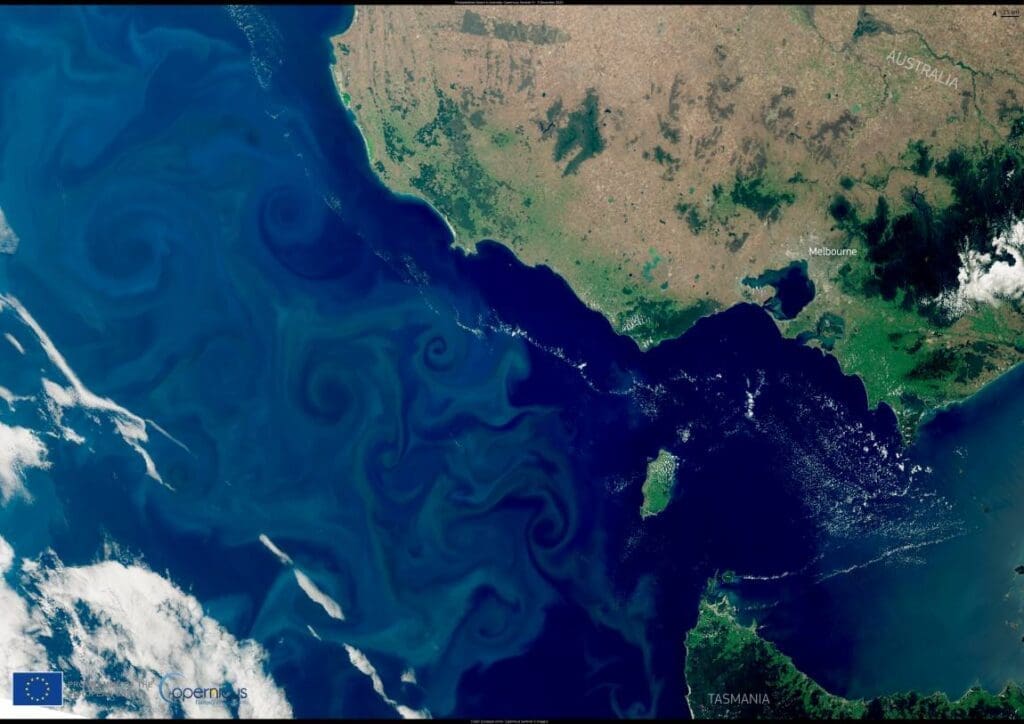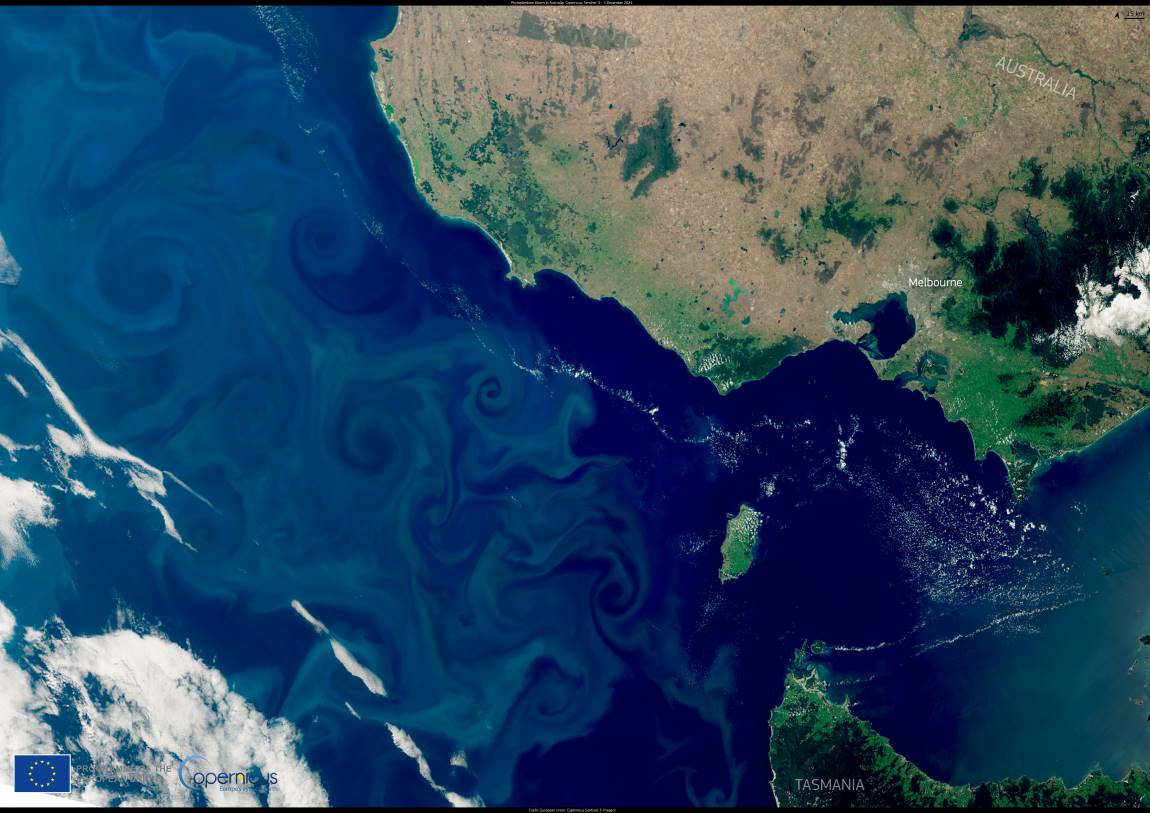A satellite image captured by Copernicus Sentinel-3 on December 3, 2024, reveals a sprawling phytoplankton bloom extending over 800 kilometers off the coast of Melbourne in the Indian Ocean.
This striking phenomenon marks the austral summer, a season that fosters these vast blooms in the eastern Great Australian Bight through a dynamic interplay of oceanographic and climatic factors.
Seasonal winds and ocean currents redistribute nutrients within the water column, creating fertile conditions for phytoplankton growth. These microscopic organisms are a cornerstone of the marine ecosystem, serving as the base of the food web and playing a significant role in regulating Earth’s climate by absorbing carbon dioxide during photosynthesis. Their seasonal surges attract a host of marine species, including fish and apex predators like blue whales, which benefit from the nutrient-rich feeding grounds formed by these blooms.

Observing these blooms is crucial not only for understanding marine biodiversity but also for assessing the broader implications for climate systems. Phytoplankton contribute significantly to carbon cycling, influencing atmospheric carbon levels and the ocean’s health.
Through the Copernicus Marine Service, the Sentinel satellites provide vital insights into oceanic changes, enabling scientists to monitor the impacts of climate change on marine ecosystems with unprecedented precision.
This image demonstrates the importance of Earth observation tools in analyzing seasonal and long-term trends in marine productivity, highlighting the links between ocean health, climate systems, and biodiversity.
Featured image credit: European Union, Copernicus Sentinel-3 imagery




